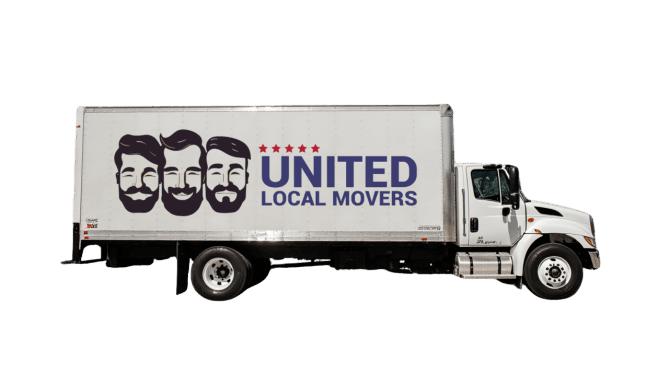Home > Interstate Moving > Moving to Texas > Moving to Fort Worth
Moving to Fort Worth
Fort Worth, Texas, is a city that embraces both its historic cowboy roots and its growing role as a modern urban hub. With a population of nearly 975,000, it’s the fifth-largest city in Texas and part of the sprawling Dallas–Fort Worth metroplex, home to more than 7.7 million residents. Known as “Where the West Begins,” Fort Worth blends history, culture, and opportunity in a way that makes it one of the fastest-growing cities in America.
Moving to Fort Worth means experiencing the charm of the Stockyards, the sophistication of Sundance Square, and the innovation of modern business districts. The city is often seen as Dallas’s quieter sibling, but Fort Worth has an identity all its own. It offers a slower pace, affordable living, and a strong sense of community, while still benefiting from the economic power of the metroplex.
At the same time, Fort Worth faces challenges, including hot summers, car dependency, and a job market less diverse than Dallas’s. Still, for many newcomers, the balance of affordability, tradition, and growth makes Fort Worth an ideal place to call home.
Why More People Are Moving from Other States to Fort Worth
Fort Worth has become a top relocation choice for people leaving expensive coastal states like California and New York, as well as for Texans moving from Houston or Austin. The number one reason is affordability. Housing costs in Fort Worth are lower than in Dallas, making it possible for families and young professionals to own homes or rent spacious apartments at reasonable prices.
Another reason is lifestyle. Fort Worth is famous for its Western heritage, from the daily cattle drives at the Stockyards to its country music scene. At the same time, it offers urban amenities like theaters, museums, and professional sports just minutes away. This combination of authenticity and modern living appeals to families, retirees, and professionals alike.
The job market also attracts newcomers. While not as large or diverse as Dallas’s, Fort Worth has strong sectors in aviation, defense, logistics, and healthcare. Lockheed Martin, American Airlines, and the Naval Air Station Joint Reserve Base provide stable employment.
Finally, Fort Worth’s location is a major advantage. Residents benefit from being part of the Dallas–Fort Worth metroplex, one of the largest economies in the U.S., while enjoying a lifestyle that feels more relaxed and less hectic than Dallas proper.
Pros of Living in Fort Worth
Affordability is the top pro. Housing prices in Fort Worth are lower than in Dallas, Austin, or Houston, making homeownership accessible to more families.
The city also offers cultural authenticity. From the Stockyards to the National Cowgirl Museum and Hall of Fame, Fort Worth embraces its heritage in a way that adds unique charm.
Another advantage is the pace of life. Fort Worth is slower and more relaxed than Dallas, offering suburban comfort with urban benefits. Families find it appealing for its parks, schools, and community atmosphere.
Fort Worth also has strong healthcare and aviation industries, providing stable jobs. Education is another strength, with Texas Christian University (TCU) adding prestige and vibrancy to the city.
Finally, Fort Worth benefits from being part of the larger Dallas–Fort Worth metroplex. Residents can easily access Dallas’s jobs, sports, and culture while enjoying Fort Worth’s affordability and identity.

Ready to get moved? Get a FREE quote now
Book your move easily and stress-free!
Cons of Living in Fort Worth
Weather is a major drawback. Summers in Fort Worth are long, hot, and humid, with frequent days above 100°F. Winters are mild, but ice storms occasionally cause disruptions.
Traffic is another issue. While not as bad as Dallas, congestion is growing as Fort Worth’s population increases. Public transportation is limited, so most residents rely on cars.
The job market, while stable, is less diverse than Dallas’s. Opportunities are concentrated in a few industries, so professionals in tech or finance may find fewer options.
Crime rates are higher in certain neighborhoods, requiring research before moving.
Finally, while Fort Worth has cultural amenities, some residents feel it lacks the variety and nightlife of Dallas or Austin. For large-scale entertainment or high-end dining, many people travel to Dallas.

What Life is Like in Fort Worth
Life in Fort Worth is a blend of Western heritage and modern living. The city retains its cowboy spirit through the Stockyards, rodeos, and country music venues, while also offering theaters, museums, and fine dining in districts like Sundance Square.
Neighborhoods cater to different lifestyles. TCU/Westcliff is popular for its proximity to the university and youthful vibe. Arlington Heights offers historic charm, while newer suburban areas like Alliance and Keller provide master-planned communities with strong schools.
Food is central to Fort Worth life. Barbecue, Tex-Mex, and Southern cuisine dominate, but the city also boasts international restaurants and a growing craft beer scene.
Community events are a big part of life. The Fort Worth Stock Show & Rodeo, Mayfest, and Main Street Arts Festival bring residents together year-round. Sports fans cheer for TCU Horned Frogs and easily access Dallas Cowboys and Mavericks games just a short drive away.
For families, Fort Worth offers affordability, safety, and suburban comfort. For professionals, it provides opportunities in aviation, healthcare, and logistics. The city’s identity as “Cowtown” adds a unique character that sets it apart from other Texas metros.
Living Costs in Fort Worth
Fort Worth is more affordable than Dallas, Austin, and Houston, though costs are rising as the city grows. Housing is the biggest advantage.
| Category | Fort Worth | National Average |
|---|---|---|
| Housing (Rent per Month) | $1,550 | $1,570 |
| Utilities | $180 | $180 |
| Groceries | $330 | $330 |
| Transportation | $160 | $140 |
| Healthcare | $430 | $440 |
Salaries in Fort Worth are competitive in industries like aviation and healthcare, but lower than in Dallas’s tech and finance sectors. Many families choose Fort Worth for its affordable housing and family-friendly lifestyle.

Ready to get moved? Get a FREE quote now
Ready to get moved? Get a FREE quote now
Schools and Education in Fort Worth
Fort Worth is served by Fort Worth Independent School District (FWISD), which educates more than 75,000 students. The district includes magnet programs, charter schools, and bilingual education options. Performance varies by neighborhood, so families often research carefully before choosing where to live.
Private schools provide alternatives, with institutions like Trinity Valley School and Fort Worth Country Day offering strong academics.
Higher education is anchored by Texas Christian University (TCU), a nationally respected institution with strong programs in business, engineering, and athletics. Texas Wesleyan University and the University of North Texas Health Science Center add to the city’s academic offerings.
For families and students, Fort Worth provides a range of educational opportunities, from public K-12 to prestigious universities.
Transportation and Getting Around
Fort Worth is largely car-dependent, but its size makes it less congested than Dallas. Major freeways like I-35W, I-30, and I-820 connect the city to Dallas and surrounding suburbs.
Public transportation is limited to Trinity Metro buses and TEXRail, which connects Fort Worth to DFW International Airport. The Trinity Railway Express (TRE) links Fort Worth and Dallas, providing a commuter rail option.
Cycling and walking are practical in certain neighborhoods like downtown and Near Southside but less common in suburban areas.
For air travel, DFW International Airport is one of the busiest in the world and just 25 miles from downtown Fort Worth. Dallas Love Field is another nearby option.

United Local Movers: Our Services
Relocating to Fort Worth is easier with movers who understand Texas. United Local Movers provides professional packing, safe storage, and long-distance moving services.
Whether you’re moving into a historic home near TCU, a downtown apartment, or a suburban home in Keller, our crews know how to handle every detail.
With transparent pricing and customized plans, United Local Movers ensures stress-free relocations to Fort Worth.
Average Cost to Move to Fort Worth
Moving costs depend on distance and services but are generally more affordable than coastal relocations.
| Move Type | Estimated Cost |
|---|---|
| Local Move (1-2 Bedrooms) | $950–$2,000 |
| Cross-Country Move | $3,200–$6,500 |
| Full Packing Services | + $400–$900 |
| Storage Options | $120–$250 per month |
United Local Movers provides clear, upfront estimates so clients know exactly what to expect.


How to Choose the Right Moving Company
When moving to Fort Worth, selecting the right mover is essential. Always verify licensing, insurance, and request written estimates. Avoid companies that provide vague or unusually low quotes.
Customer reviews offer insights into reliability and professionalism. Movers familiar with Fort Worth neighborhoods and the wider metroplex can help make transitions smoother.
United Local Movers combines national reach with local expertise, making it the trusted choice for Fort Worth relocations.
Final Thoughts
Fort Worth is a city that blends heritage, affordability, and opportunity. Its cowboy culture, family-friendly neighborhoods, and proximity to Dallas make it unique among Texas metros. While hot summers, limited transit, and a narrower job market present challenges, its affordability and community atmosphere often outweigh the drawbacks.
For families, students, and professionals, Fort Worth offers an appealing lifestyle that balances big-city access with small-town charm. And with United Local Movers, your move to Fort Worth can be smooth, professional, and stress-free.



![local movers in [City] local movers in [City]](https://unitedlocalmovers.com/wp-content/uploads/elementor/thumbs/local-movers-in-City-rj6z70ii1a4awlun6ubh8rd3n7tif0jfillzrg9hao.jpg)
